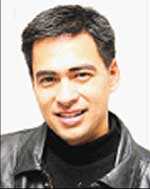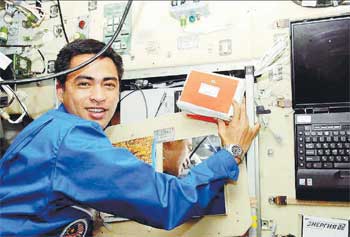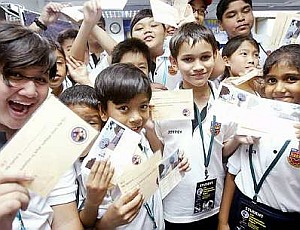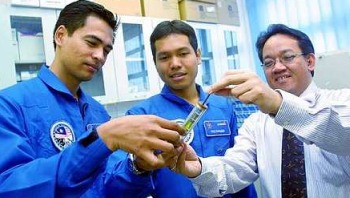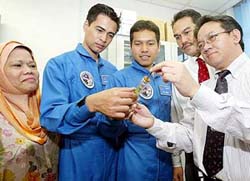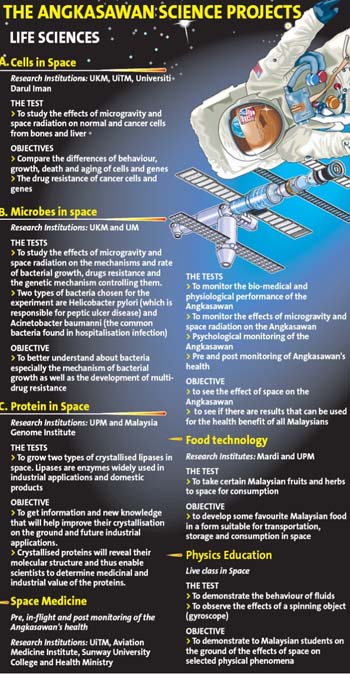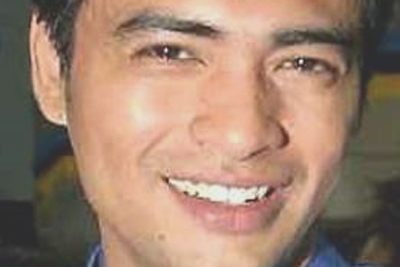Topic: - The Experiments
PENANG: The results of experiments carried out in space by angkasawan Dr Sheikh Muszaphar Shukor will be released next month.
The results of various experiments with proteins and the effects of micro gravity and space radiation on cells and microbes would be shared with international researchers soon, the country’s first cosmonaut said during the closing of the Brain Awareness Week (BAW) 2008 at Universiti Sains Malaysia (USM) Friday.
"I have spoken with the scientists and researches involved in the project and they said the results will be published soon - in about a month's time," he said, when responding to questions by students attending his talk on Brain in Space: Our New Frontier.
Asked why the experiments had to be carried out in space, the 35-year-old orthopaedic surgeon said it was because zero gravity allowed the specimens to be studied in its "3D form".
"If studied on earth under a microscope, the cells would have been flattened slightly because of the effects of gravity. In space, we can view the specimens as if they were in the human body," he explained, adding that he was keen on returning to medical practice.
"I miss seeing my patients and being in the operating theatre. I also hope to one day find the cure for cancer," he said.
The experiments were conducted while he was on the International Space Station (ISS). On Oct 10, Dr Sheikh Muszaphar made history by becoming the first Malaysian to fly to space.
He managed to bring home the specimens safely despite the Soyuz TMA-10 spacecraft's rough landing on Oct 21.
The protein crystals were sent straight to Osaka University for analysis with an ultra-sophisticated microscope while the osteoblast and Huvec were brought to Russia's Institute of Bio Medical Problems for analysis before being flown to Malaysia on Oct 27 last year.
The cancer and microbe cells went straight to Malaysian laboratories.
He told participants that his health would still have to be monitored to determine the effects of space radiation.
"I am healthy. Thank God my normal body function was not affected but with radiation, the effects may only be apparent several years down the line. That is why my heath has to be monitored," he said, adding that by being in space, he could have been exposed to certain unnatural conditions and risks including exposure to radiation equivalent to five chest X-rays daily, while micro-gravity caused redistribution of his body fluid.
His body became a live laboratory for Malaysian, European and Japanese scientists who were studying the effects of micro-gravity and space radiation on humans.
These effects on humans in space are also being studied under the European Space Agency and Japanese Space Exploration Agency (Jaxa) experiments, of which Dr Sheikh Muszaphar is participating as a specimen.
Source: The Star Online

